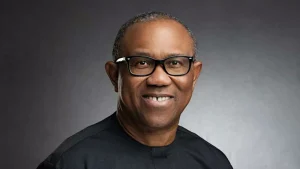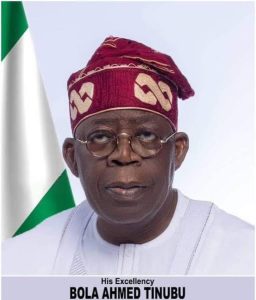State of Emergency Rule: Fubara Erroneously Implicated in Security Issues
A recent report by the Coalition of Human Rights Monitoring Group has come forward with claims that Governor Siminalayi Fubara of Rivers State was erroneously implicated in security issues that led to the declaration of a state of emergency in the state. The report challenges the allegations made by the federal government, including the accusations of the governor’s involvement in militant activities and his alleged connection to the destruction of the State House of Assembly building.
In a televised nationwide broadcast on Tuesday night last week, President Bola Ahmed Tinubu declared a state of emergency in Rivers State, citing grave concerns about the political crisis in the state. He specifically accused Governor Fubara of demolishing the Rivers State House of Assembly building and suggested that this act contributed to the political instability that necessitated the emergency declaration.
YOU MAY READ
EFCC Might Arrest Gov. Fubara for Corruption to Prolong Suspension: Insider Revelations
As part of the emergency rule, Governor Fubara, his deputy Ngozi Odu, and all elected members of the Rivers State House of Assembly were suspended for an initial period of six months. In the interim, a retired Vice Admiral, Ibokette Ibas, was appointed as Administrator to oversee the administration of the state during the emergency period.
The decision, however, has sparked widespread controversy and criticism from many quarters. Several Nigerians have questioned the legality of the decision, with many pointing to the potential overreach of federal authority into state matters. Among the most vocal critics of the state of emergency declaration are human rights groups, political analysts, and some citizens of Rivers State, who argue that the decision was based on politically motivated claims and unfounded accusations.
The Coalition of Human Rights Monitoring Group, in its report on the crisis in Rivers State, has strongly rejected the claims made by the federal government regarding Governor Fubara’s involvement with militant groups. The report categorically states that there is no verifiable evidence linking Governor Fubara to militant groups that have been associated with pipeline vandalism and other security breaches in the state.
YOU MAY READ
Suspension of Fubara and Others: This Illegality Cannot Stand – Amaechi Tells Tinubu
The group’s report, which was unveiled at a press conference in Abuja on March 26, 2025, emphasized that the allegations against Fubara were politically motivated fabrications. These fabrications, according to the Coalition, were aimed at destabilizing his administration and undermining his governance. The Coalition asserted that their investigations found no substantial evidence to suggest any financial transactions, operational collaboration, or any form of coordination between the Rivers State government and known militant factions.
According to the report, the allegations of Fubara’s involvement with militant groups were part of a broader attempt to undermine his political legitimacy and to discredit his administration. It is clear to the Coalition that these allegations have been made in bad faith, with the intent to tarnish the governor’s image and further exacerbate the already tense political environment in the state.
One of the significant factors highlighted in the Coalition’s report is the role of Nyesom Wike, the current Minister of the Federal Capital Territory (FCT) and former Governor of Rivers State. The report suggests that Wike’s inflammatory remarks have contributed to the tensions in the state, further stoking divisions and inflaming the political crisis.
As a former governor of Rivers State, Wike has maintained significant influence within the state’s political landscape. His comments and actions have played a role in shaping the public narrative surrounding Governor Fubara, which, according to the Coalition, has been less about governance and more about personal power struggles. Wike’s controversial statements about Fubara’s administration and the situation in Rivers State have been described as part of a broader political agenda aimed at destabilizing the state for political gain.
The Coalition condemned Wike’s statements as reckless, noting that public office holders have a constitutional and ethical responsibility to promote national unity and peace. Instead, Wike’s rhetoric has only served to escalate tensions and create a more volatile environment, which, according to the Coalition, has contributed to the current crisis.
The Coalition of Human Rights Monitoring Group has made several recommendations in light of their findings. First, they have called for an immediate cessation of political hostilities in Rivers State. The group insists that political actors on all sides should prioritize peace, unity, and development over personal ambitions and power struggles. They also called for the withdrawal of security forces that have been unlawfully deployed in the state, further arguing that the presence of these forces has only served to deepen divisions and create an atmosphere of fear and insecurity.
Additionally, the Coalition has called for an independent investigation into the allegations of militancy and security breaches in Rivers State. Such an investigation, they argue, is crucial to determine the true instigators of the unrest and to hold those responsible for the crisis accountable.
The report makes it clear that Governor Fubara has no verifiable ties to the militant groups that are causing insecurity in the state. The Coalition stated that the security challenges in Rivers State are not of Fubara’s making but are rather symptomatic of deeper, historical struggles for equity and justice in the Niger Delta region. These challenges, they argued, should not be used as a political weapon to undermine a democratically elected leader.
The Coalition has also voiced its strong support for Governor Fubara, calling for his exoneration from the false allegations against him. According to the Coalition, clearing his name is not just a matter of defending the governor’s reputation, but also a broader defense of democracy and good governance in Nigeria. They cautioned that sacrificing Fubara for political expediency would set a dangerous precedent, further eroding trust in Nigeria’s democratic institutions.
Governor Siminalayi Fubara, according to the Coalition, has consistently demonstrated his commitment to peace, stability, and good governance. His administration has focused on transparent governance, with an emphasis on protecting the state’s vital oil installations and fostering a conducive environment for development. These efforts, the Coalition argues, stand in stark contrast to the allegations that have been made against him.
YOU MAY READ
Pro-Wike Lawmakers Lock Out Rivers Governor Fubara At House Of Assembly Complex
The governor has long called for greater protection of the region’s oil infrastructure, which has been a target of various militant groups. His administration has worked to improve security and reduce the incidence of pipeline vandalism, although these efforts have been met with limited success due to the complex and entrenched nature of the region’s security challenges.
The Coalition believes that Fubara’s record of governance should not be overshadowed by baseless political accusations. Instead, they advocate for a more nuanced understanding of the challenges facing Rivers State, including the broader socio-economic issues that have contributed to the insecurity in the region.
The Coalition also appealed to the international community and civil society organizations to stand in solidarity with the people of Rivers State. The Coalition argued that the situation in the state is not just a local issue but one that has broader implications for Nigeria’s democracy. The weaponization of false accusations for political gain, they warned, could lead to a destabilizing precedent for other parts of the country.
The international community, particularly those who support democratic values, was urged to closely monitor developments in Rivers State and to advocate for a peaceful resolution to the crisis. The Coalition believes that Nigeria’s democracy is at a critical juncture, and actions taken now could either strengthen or undermine the country’s democratic institutions.
In conclusion, the Coalition of Human Rights Monitoring Group’s report provides a robust defense of Governor Fubara and challenges the narrative that has been pushed by some political actors regarding his role in the security crisis in Rivers State. The group calls for an end to the political hostilities, an independent investigation into the allegations of militancy, and a recommitment to the values of peace, stability, and good governance. Their report emphasizes that the political crises in Rivers State must not be used as a tool for political maneuvering at the expense of democratic principles and the well-being of the people of the state.
Source: LIB





